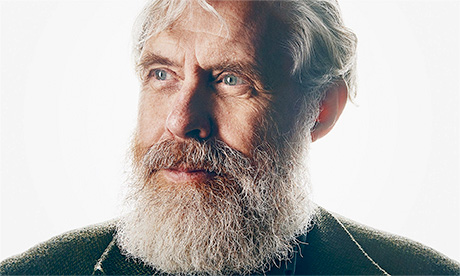One of the world’s leading geneticists says it will only be a matter of time before the genes of human embryos are ‘edited’ to enhance their health and intelligence – and it is something we should embrace rather than fear.
George Church, Professor of Genetics at Harvard Medical School, said the current controversy surrounding the editing of human embryos was overblown and compared it to the short lived moral panic that preceded the introduction of IVF or “test tube babies” in the late 1970s.
Interviewed for a feature in this week’s Telegraph Magazine Church, who made his name as part of the international team that first mapped the human genome in 2003, said he was less worried about gene editing being used to enhance human intelligence than the technique being restricted to a privileged few. He predicted it would eventually be “adopted worldwide”.
“I just don’t think that blue eyes and [an extra] 15 IQ points is really a public health threat,” he said, “I don’t think it’s a threat to our morality.”
In November, a Chinese scientist, He Jiankui, shocked the world by announcing he had used CRISPR-Cas9, a genetic editing tool Church helped pioneer, to disable a gene called CCR5 in the embryos of twin girls to make them resistant to HIV.
The move was condemned as ‘monstrous’ by scientists worldwide as it broke a long-standing scientific taboo – using an unproven technique to address a disease that is already treatable.
But while others expressed outrage, Church remained equivocal, telling Science magazine, “As long as these are normal, healthy kids, it’s going to be fine for the field and the family.”
In his interview with The Telegraph, Church went further, comparing the reaction to the announcement with the fear that surrounded the first use of IVF.
“For a while, it looked like In Vitro Fertilisation was going to be something that was not used, because everybody said ‘test tube babies!’ that’s really scary,’” he said. “Then one healthy baby later, Louise Brown in 1978, and suddenly it’s OK.”
Genetic editing already holds the promise of eradicating sickle cell anaemia and certain inherited kinds of blindness and cancer. But if we start editing the genes of embryos to resist disease, many worry it will only be a matter of time before we start to enhance them for intelligence or other desirable traits.
Both attitudes, he said, were wrong: “We shouldn’t have been panicking before it was tested, and we shouldn’t have been giving it the green light just based upon one baby”.
He added: “It’s very likely to be the same thing with edited babies – especially if it protects us against serious diseases like HIV. It could be analogous to a vaccine, right? That’s something that would be adopted worldwide.”
Genetic editing already holds the promise of eradicating sickle cell anaemia and certain inherited kinds of blindness and cancer. But if we start editing the genes of embryos to resist disease, many worry it will only be a matter of time before we start to enhance them for intelligence or other desirable traits.
Further, by editing an embryo’s genes you create a change that is passed on through the generations.
Stephen Hawking’s final prediction, in an essay published after his death a year ago this week, was that the wealthiest strata of society would soon begin editing their own and their children’s DNA to create a ‘superhuman’ race, with enhanced memory, disease resistance, intelligence and longevity – dividing humanity into genetic ‘haves’ and ‘have-nots’. Continue reading
Additional readingNews category: Analysis and Comment.




